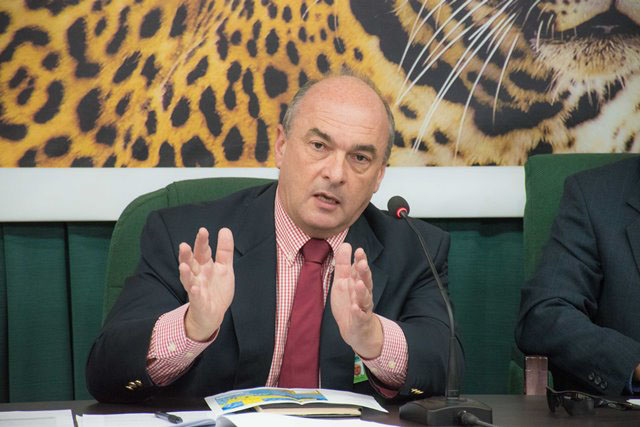Oil and gas adviser Matthew Wilks says that the Department of Energy (DoE) will reject charges for unjustified spending that any oil company may seek to recover from government as development costs.
Wilks made the declaration on Monday at a DoE press conference at the Ministry of the Presidency.
Stabroek News questioned Wilks and head of the DoE, Dr Mark Bynoe on what progress had been made in ensuring that all costs submitted to the government by oil operators are carefully examined for wasteful expenditure and possible corruption.
Bynoe refused to comment on wasteful spending, but Wilks said that the power of the government is in cost recovery audits, whether it’s for Exxon’s Liza-1 Field or going forward.
“…And I think there are also questions about cost and cost at the right level. I think we’ve seen some stuff in the newspapers quite recently about certain costs. Just let me just put it very, very bluntly: If anyone tries to charge costs which are unwarranted or not benchmarked and are excessive, the Department will reject them,” he said, while noting that the purpose of cost recovery audits is not merely to sign off on costs but to say no under the right circumstances.
“So no will be said. So when we look at cost, and that’s the whole purpose of getting qualified companies in who have experience in auditing. Who have benchmarking capabilities so that they can look at the cost and benchmark them and tell the government if the cost is excessive or in the right order. If anything is excessive and there is no good reason for it being done, it will be disallowed and that is a risk for the companies and any operator. If an operator expends too much or doesn’t seek cost efficiency, it might be spending its own money, not the government’s because we will disallow it. Pure and Simple,” Wilks added.
Bynoe also emphasised that they will be scrutinising the reduction in development cost for ExxonMobil’s offshore Liza Phase-1 project, from US$4.4 billion to US$3.7 billion.
“First and foremost let me allay your fears. We are challenging it and that’s why we are going the road we have gone in terms of also having a third party review of the FDP2 [Field Development Plan 2] which does not recuse us from also looking at FDP1… So in the final analysis, our officers would be working along with Bayphase,” Bynoe explained.
On December 16th, 2018, Stabroek News had reported on the development cost for ExxonMobil’s offshore Liza Phase-1 project being slashed from US$4.4 billion to US$3.7 billion.
The US$700 million reduction was made public by one of the company’s two partners in the offshore Stabroek Block operations, Hess.
“The original Exxon estimate for Phase 1 was US$4.4 billion; it is now US$ 3.7 billion. Exxon is doing a terrific job, the drilling campaign is going well, we will keep learning as we progress…and that includes the acquisition of the ship,” Senior Vice President and Chief Financial Officer at Hess, John Rielly, had told an investor forum in Houston Texas, which was held on December 12th, 2018.
Guyana had not investigated the US$4.4 billion figure which had originally been set for the Liza Phase-1 cost and critics have said that this is type of cost submission where the country could end up losing a lot of money by not doing a forensic evaluation. When questioned on Monday about whether he was concerned that Bayphase, an oil and gas consultancy firm, is a client of ExxonMobil, Bynoe said “absolutely not” and explained that it is difficult to find potential reviewers who would not have any affiliation with an operator before. He said it was also unfair to cast aspersions on an entity before it has been allowed to do its job and as he reiterated that the selection would’ve went through a review and evaluation process which had received a no-objection from the World Bank.
Bynoe also announced that they are working along with the Bank of Guyana (BOG) as the insurance regulator to require operators to comply with Guyana’s laws and insurance policy. He said that there will be no approval from the department for self-insurance.









